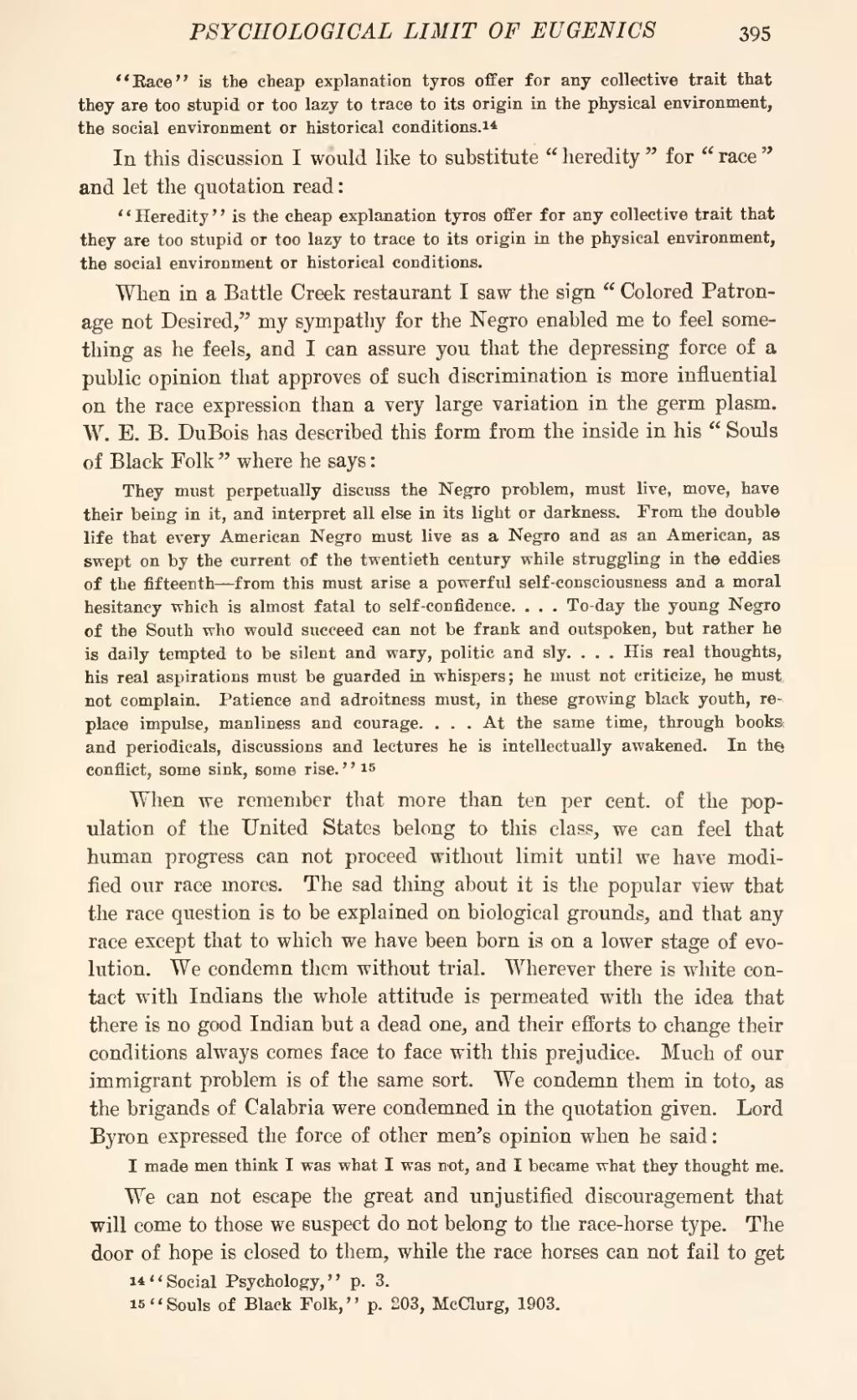"Race" is the cheap explanation tyros offer for any collective trait that they are too stupid or too lazy to trace to its origin in the physical environment, the social environment or historical conditions.[1]
In this discussion I would like to substitute "heredity" for "race" and let the quotation read:
"Heredity" is the cheap explanation tyros offer for any collective trait that they are too stupid or too lazy to trace to its origin in the physical environment, the social environment or historical conditions.
When in a Battle Creek restaurant I saw the sign "Colored Patronage not Desired," my sympathy for the Negro enabled me to feel something as he feels, and I can assure you that the depressing force of a public opinion that approves of such discrimination is more influential on the race expression than a very large variation in the germ plasm. W. E. B. DuBois has described this form from the inside in his "Souls of Black Folk" where he says:
They must perpetually discuss the Negro problem, must live, move, have their being in it, and interpret all else in its light or darkness. From the double life that every American Negro must live as a Negro and as an American, as swept on by the current of the twentieth century while struggling in the eddies of the fifteenth—from this must arise a powerful self-consciousness and a moral hesitancy which is almost fatal to self-confidence. . . . To-day the young Negro of the South who would succeed can not be frank and outspoken, but rather he is daily tempted to be silent and wary, politic and sly. . . . His real thoughts, his real aspirations must be guarded in whispers; he must not criticize, he must, not complain. Patience and adroitness must, in these growing black youth, replace impulse, manliness and courage. . . . At the same time, through books: and periodicals, discussions and lectures he is intellectually awakened. In this conflict, some sink, some rise."[2]
When we remember that more than ten per cent, of the population of the United States belong to this class, we can feel that human progress can not proceed without limit until we have modified our race mores. The sad thing about it is the popular view that the race question is to be explained on biological grounds, and that any race except that to which we have been born is on a lower stage of evolution. We condemn them without trial. Wherever there is white contact with Indians the whole attitude is permeated with the idea that there is no good Indian but a dead one, and their efforts to change their conditions always comes face to face with this prejudice. Much of our immigrant problem is of the same sort. We condemn them in toto, as the brigands of Calabria were condemned in the quotation given. Lord Byron expressed the force of other men's opinion when he said:
I made men think I was what I was not, and I became what they thought me.
We can not escape the great and unjustified discouragement that will come to those we suspect do not belong to the race-horse type. The door of hope is closed to them, while the race horses can not fail to get
